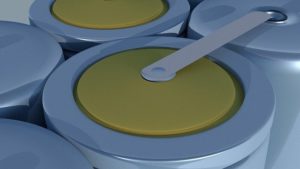APPLICATIONS OF TECHNOLOGY:
- Batteries, electronics, electrical vehicles
BENEFITS:
- Enables fast Li transport
- Significantly improves the rate performance of Mn- and Ni-based DRX materials compared to previous technologies
BACKGROUND:
- Li-rich cation-disordered rocksalt (DRX) materials have promising high capacities and energy densities, but typically suffer from low-rate capability. To address this issue, researchers have discovered that rate capability in a DRX cathode can be significantly improved when the topotactic reaction is replaced by a non-topotactic reaction.
TECHNOLOGY OVERVIEW:
High-rate cathode materials for Li-ion batteries require fast Li-transport kinetics, which typically relies on topotactic Li intercalation/de-intercalation because it minimally disrupts Li-transport pathways. In contrast to this conventional view, researchers at Berkeley Lab have developed a novel strategy to significantly improve rate capability of cathode materials for Li-ion batteries.
Specifically, they designed high-rate cathode material which is an essential component in Li-ion batteries. The Cr-doped DRX cathode delivers a large discharge capacity of 160 mAh/g at 1 A/g, which is ~250% higher than the capacity (64 mAh/g) of un-doped material. By demonstrating that non-topotactic engineering improves rather than impedes Li transport, this strategy counters the previous understanding that transition-metal migration is unfavorable for fast Li-transport.
This technology can be applied to other DRX material systems to optimize overall battery performance. Ultimately, it addresses the demand for low cost, safe batteries made with sustainable materials.
DEVELOPMENT STAGE: Proven principle
RELATED TECHNOLOGY:
FOR MORE INFORMATION:
Huang, J., Zhong, P., Ha, Y. et al. Non-topotactic reactions enable high rate capability in Li-rich cathode materials. Nat Energy (2021). https://doi.org/10.1038/s41560-021-00817-6
PRINCIPAL INVESTIGATORS:
STATUS: Patent pending.
OPPORTUNITIES: Optioned for certain Fields of Uses. Parties interested in licensing or collaborative research should contact ipo@lbl.gov.
